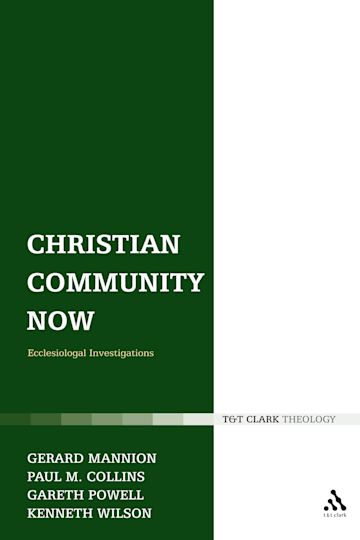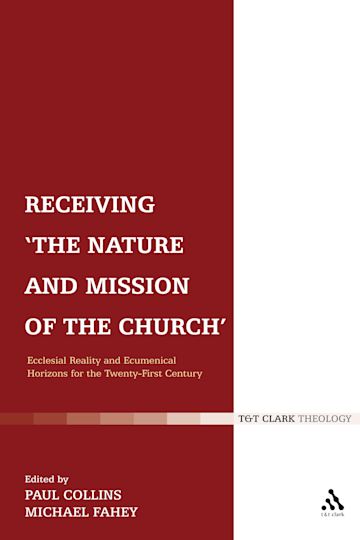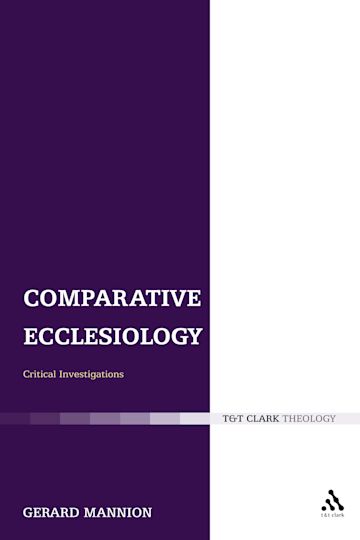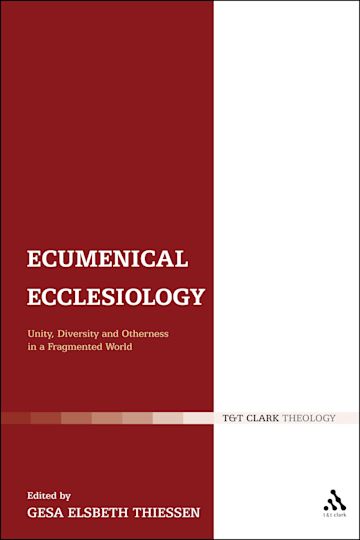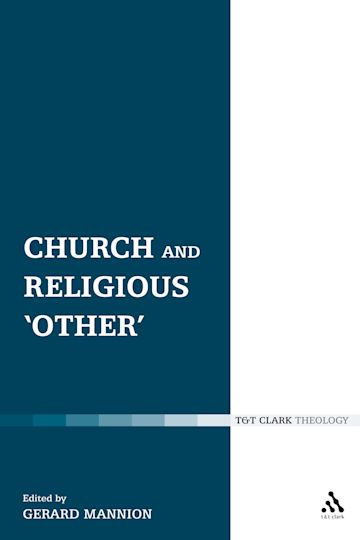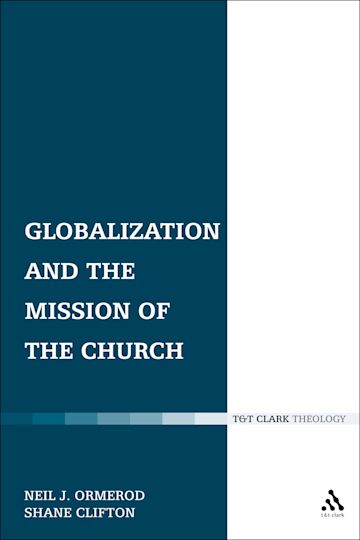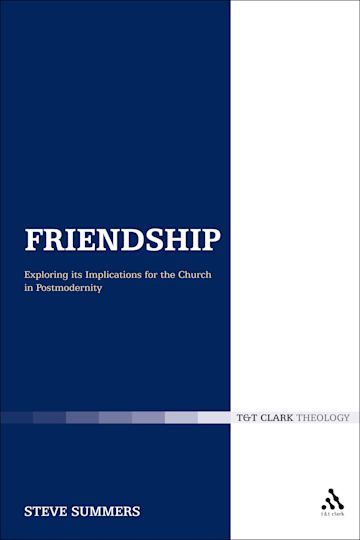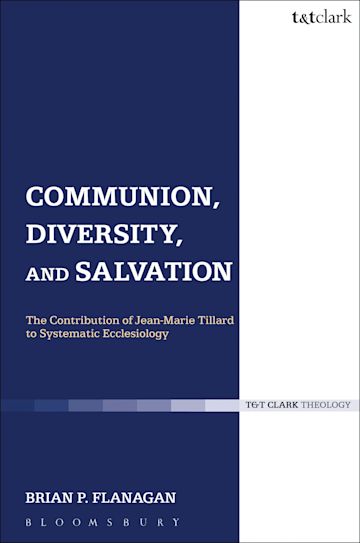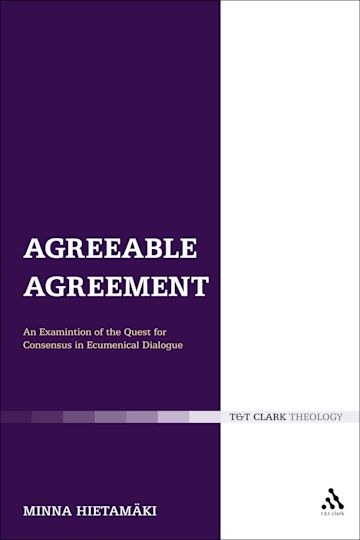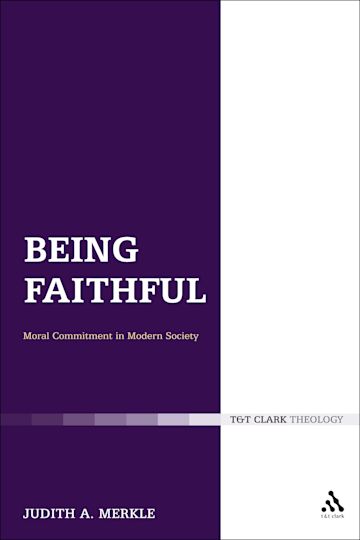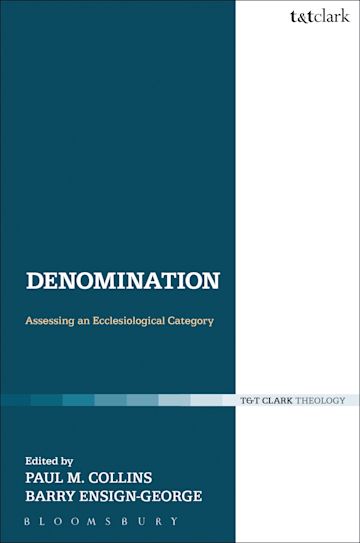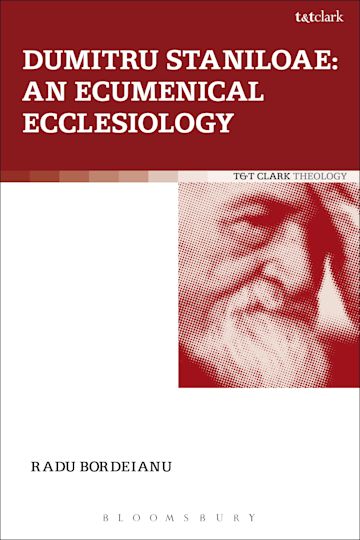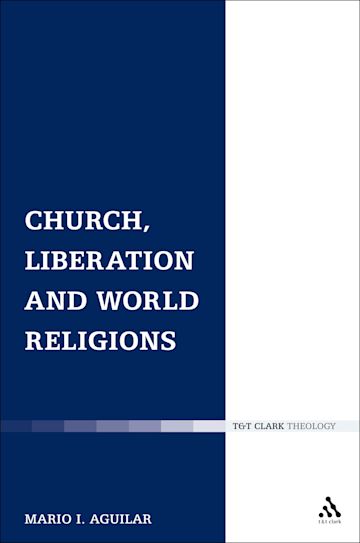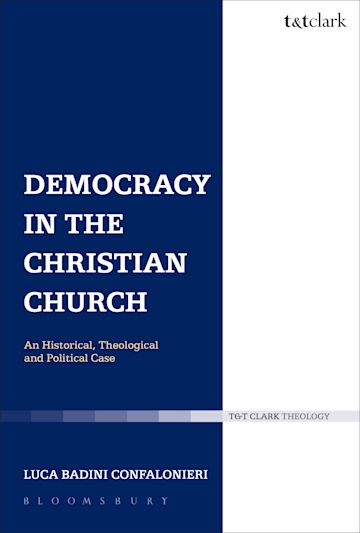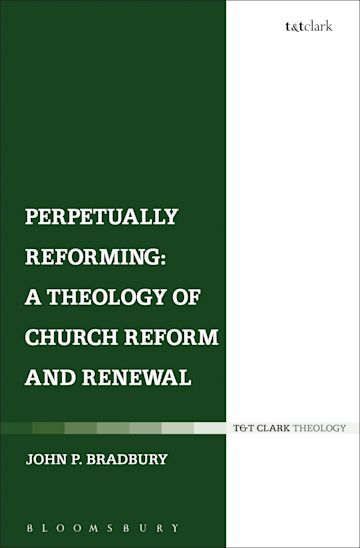
Christian Community Now: Ecclesiological Investigations
This co-authored volume is the outcome of an ecumenical speaking and listening that has involved a continuing conversation between four theologians over a period of more than two years. The scholars are active members of the mainline churches in the UK, Anglican, Methodist and Roman Catholic. They propose that the Church will live as it grows in self-understanding, in the light of the claim that her purpose is to focus attention on God, Creator, Redeemer, and Living Presence. In so doing they address key debates in the US and European contexts, as well as dealing with matters of pressing concern in the wider global church. What does it mean to say that the Church in herself and on behalf of the world bears witness to and celebrates the presence of God in contemporary ethics, worship, governance and mission? The authors have sought to bridge the gap between theoretical and practical theology, and ecclesiology. Key features are accessibility, the highly pertinent nature of the themes it covers, its academic purpose and its awareness of the parish and ministerial contexts.
Receiving ‘The Nature and Mission of the Church’: Ecclesial Reality and Ecumenical Horizons for the Twenty-First Century
A collection of essays and assessments in which scholars from a variety of denominational, geographical and ecclesiological backgrounds attempt to discern the significance of the 2006 document Nature and Mission of the Church from the World Council of Churches. Thereby offering doctrinal, theological and hermeneutical perspectives and analysis on its formation and content. The essays also seek to discern the potential ecumenical ramifications of the document. Contributions also address futures for ecumenical dialogue and the development of an ecumenical ecclesiology in general. This is an apposite and timely collection of responses which includes contributions from those who witnessed its launch in the context of the WCC in 2006 at Porte Allegre. Whilst so many books on the church already exist, the focused nature of the proposed volume, as well as the international, and broad denominational range of the contributors, makes this proposed volume unique.
Comparative Ecclesiology: Critical Investigations
This volume will explore issues such as the nature, method and development of comparative ecclesiology; critical assessments as well as appreciations of Roger Haight's Christian Community in History. The Jesuit, Roger Haight, has written extensively in the fields of systematic theology, liberation theology, Christology and, of course, ecclesiology itself. He champions the need for the church to embrace a dialogical mission. This represents his most extensive work to date in ecclesiology and is a monumental volume study in comparative ecclesiology, volume 3 coming in 2008, building upon the insights developed in recent years in the more general sub-discipline of comparative theology. In all, Haight's pioneering work in this emerging field of comparative ecclesiology encourages us to immerse our contemporary explorations in, first, historical consciousness, thereby inculcating the disposition of humility - both in methodological terms and, when one realises how far short we fall of some of our ecclesial forebears, in terms of ecclesial life and practice as well. Second, as indicated, he commends the positive appreciation of pluralism. Third, a whole-part conception of church, neither placing universal over and above local nor vice-versa. Four, we should be attentive to embracing the gifts and human challenges of religious pluralism. And, of course, five, Haight reassures those fearful that such undertaking might entail any loss for the churches: he reminds us how such ecclesiological encounters are and should be undertaken from within a particular confessional or ecclesial identity. We have assembled a range of noted ecclesiological scholars to discuss not simply Professor Haight's work, but also to engage with the issues he raises in a wider context, such as the respective methodological debates surrounding ecclesiology 'from above' and 'from below', to the nature and promise of comparative ecclesiology in itself, to the prospects for a 'pluralistic ecclesiology' in the world today, and the challenges such an undertaking presents to the Christian churches. Roger Haight will be invited to offer his own reflections upon the various chapters.
Ecumenical Ecclesiology: Unity, Diversity and Otherness in a Fragmented World
This is a rich collection of fifteen articles by European, North American and Asian theologians who are concerned with the concept, life, unity and future of the church. It offers a wealth of broad perspectives on ecclesiology by scholars from Catholic, Protestant and Orthodox backgrounds. The first section, 'Perspectives on Ecumenical Ecclesiology', comprises reflections on postmodern ecclesiologies as well as on the development and problems concerning ecumenical methods and models of unity. The second section, 'Communion Ecclesiology and Otherness', provides some pertinent deliberations on how an ecclesiology of communion can integrate otherness. In particular, Zizioulas' communion ecclesiology is critically examined, the possibility for a retrieval of Eucharistic theology between Catholics and Orthodox is put forward, and Tillard's communion ecclesiology is appraised as offering resources for innerdenominational otherness. The final section, 'Ecclesiology in Global Contexts', considers critically the possibility of evangelical ecclesiology as an answer to ethnic impaired Christian community. The role of the (Catholic) Church and its values in Europe and vis-à-vis the European Constitution is examined. The Church of Nigeria's Constitutional Revision (2005) and its ecclesial- ecumenical implications comes into focus, and three notable concepts of unity, as developed by three Indian scholars, S.K. George, John Sadiq and Karem David, are evaluated. Finally, the Japanese diaspora in the States is appraised as a place where a particular Japanese Christian vision could emerge through the "internationalist ecclesiology" developed by Japanese Christian missionaries.
Church and Religious ‘Other’
This volume brings together the prestigious speakers at the inaugural Church in Our Times Lecture Series at Liverpool Hope, throughout the first 4 months of 2006, and invited contributors from and addressing wider international contexts - Africa, Sri Lanka, India and the United States. The volume explores themes such as questions of ecclesial and religious identity in these post-modern times, the advent of neo-exclusivism, divisions within the contemporary Roman Catholic and Anglicans churches, inter-faith relations and dialogue, questions of sexuality and Christian ministry, contemporary understandings of ecclesial authority, teaching and tradition, the inter-relation between the church and the kingdom of God today, an Asian appraisal of Pope Benedict's first sermon, inculturation and the rhetoric and reality of the notion of Church as Christianity's most distinctive and defining feature and constructive proposals for ecumenical ways forward in the future. The commonality and coherence of the papers, along with the manner in which a number of them together contribute towards making a cumulative case upon similar issues of concern for the 'church in our times', constitute a major strength of this collection. This volume will interest faculty and students engaged in the study of the contemporary church, ecumenism, global Christianity, secularity and inter-religious dialogue, as well as appealing to ministers and pastors as well as the general reader excited by the most pressing debates pertaining to the church in these times.
Globalization and the Mission of the Church
Various social, political, economic and cultural commentators are presently arguing that human history is reaching a decisive stage in its development, a stage marked by increased interconnection between peoples, the compression of space and time, a sharing of ideas at unprecedented levels, global trade and finance, and so on. The shorthand word used to encompass these phenomena is "globalization". Some embrace it, others reject it, while still others dispute its existence. But with the abundance of literature and debate that it generates, the topic cannot be ignored. From its inception in the missionary mandate of Jesus (Matthew 28), Christianity has had a global dimension to its mission. Christianity is not a spectator to globalization but one of its agents, one of the forces at work which have extended interconnection between peoples, shared ideas and promoted social, political and cultural links. The purpose of the present work is not to provide a complete response to the question of the mission of the church in a globalizing world, but to establish a framework within which answers may be sought. Grounded in the writings of Bernard Lonergan and Robert Doran, it develops a theology of history and addresses the churches response to the impact of globalization on vital, social, cultural, personal and religious values. The project brings together the perspectives of Catholicism and Pentecostalism, the former providing a depth of wisdom and tradition, the latter drawing on the insight of a newly emerging movement that has taken root in every continent with remarkable energy and enthusiasm.
Friendship: Exploring its Implications for the Church in Postmodernity
Is the Church a community of friends? Steve Summers explores the significance of friendship for our understanding of the church today. Since Jesus' statement in St John's gospel "I call you friends" the concept of friendship has had a huge influence on the Christian understanding of community. But is the historical understanding of friendship enough to serve the needs of the church in a post-modern age? Steve Summers explores the limits of the concept as well as it's possible use in contemporary ecclesiology.
John Calvin’s Ecclesiology: Ecumenical Perspectives
Many events were staged and a plethora of new books appeared to mark the quincentenary of the birth of John Calvin, in 2009. But one area received considerably less attention in that anniversary year - namely, Calvin's ecclesiology. This study explores the development and fundamental legacy of Calvin's perspectives on and relationship with the church. Contributions are included which explore the later development and 'denominational variations' of Calvin's ecclesiology, along with ecumenical discussions/responses to and implications of Calvin's understanding of the church. There are further chapters which focus on particular aspects such as Calvin's ecclesiological method, understanding of ministry, the 'sacramental' principle, the 'invisible church' etc. Contributions on the use of Calvin's ecclesiology by later and modern/contemporary ecclesiologists also feature. This is a volume that brings together leading and emerging theological voices from Europe, North America and Latino America and from across the different theological sub-disciplines. Significantly, the book has a decidedly ecumenical perspective, with writers from several different denominational traditions contributing.
Communion, Diversity, and Salvation: The Contribution of Jean-Marie Tillard to Systematic Ecclesiology
Questions surrounding the understanding of "communion" are a significant feature of much contemporary ecclesiology, but their prominence calls attention to wider questions regarding ecclesiological method. Brian Flanagan addresses the questions of how to characterize a systematic ecclesiology and the possibility of a systematic communion ecclesiology through an investigation of the concept of communion in the work of Jean-Marie Tillard, OP. Tillard's theology is noted as the most prominent Roman Catholic communion ecclesiology. Flanagan argues that Tillard contributes to systematic ecclesiology by defining the concept of communion in relation to Christology, soteriology, and theological anthropology, thereby framing an answer to the contemporary question of ecclesial unity and diversity. The book also assesses the danger of idealism in Tillard's thought, and suggests that further engagement with social scientific study of the church will help strengthen, nuance, and critique Tillard's idea of communion.
Agreeable Agreement: An Examination of the Quest for Consensus in Ecumenical Dialogue
In recent bilateral ecumenical dialogue the aim of the dialogue has been to reach some form of doctrinal consensus. The three major chapters of the book discuss the variety of forms of doctrinal consensus found in ecumenical dialogues among Anglicans, Lutherans and Roman Catholics. In general, the dialogue documents argue for agreement/consensus based on commonality or compatibility. Each of the three dialogue processes has specific characteristics and formulates its argument in a unique way. The Lutheran-Roman Catholic dialogue has a particular interest in hermeneutical questions and proposes various forms of "differentiated" or perspectival forms of consensus. The Anglican-Roman Catholic dialogue emphasises the correctness of interpretations. The documents consciously look towards a "common future", not the separated past.
Being Faithful: Christian Commitment in Modern Society
This book explores how the Christian life is lived in a pluralistic situation where different contexts of belonging give rise to different moral challenges. While it is characteristic of modern life to exist in a postmodern situation where there is an erosion of comprehensive systems of meaning, we still live today in contexts of belonging. We still seek to gather out of the fragments of modern life the sustenance of a network of belonging, belief and practice which comprise a faithful life. The construction of such a life, not only for us, but for others, serves as the framework for our moral commitments. Furthermore, sustaining and transforming social frameworks which shape various aspects of human life form the life task of adult Christians.
Denomination: Assessing an Ecclesiological Category
The term "denomination" is now widely used to describe a Christian community or church. But what is a 'denomination'? In this highly creative collection of essays, representatives of all major Christian traditions give an answer to this question. What does the term mean in their own tradition? And does that tradition understand itself to be a 'denomination'? If so, what is that understanding of 'denomination'; and if not, how does the tradition understand itself vis à vis those churches which do and those churches which do not understand themselves as 'denominations'? In dialogue with the argument and ideas set forth in Barry Ensign-George's essay, each contributor offers a response from the perspective of a particular church (tradition). Each essay also considers questions concerning the current landscape of ecumenical dialogue; ecumenical method and the goals of the ecumenical movement; as well as questions of Christian identity and belonging.
Dumitru Staniloae: An Ecumenical Ecclesiology
Widely considered the most important Orthodox theologian of the twentieth century, Dumitru Staniloae (1903-1993) contributed significantly to an ecumenical understanding of these themes. Because of his isolation by the Romanian Communist regime, his work still awaits its merited reception, especially given its potential contribution towards Christian unity. In Staniloae's understanding the Church is a communion in the image of the Trinity. Because there is a continuum of grace between the Trinity and the Church, the same relationships that exist among trinitarian persons are manifested in creation in general, and the Church in particular. In this way, the Trinity fills the world and the Church, determining their mode of existence. Intratrinitarian relationships are manifested in the relationships between humankind and non-human creation, the Church and the world, local and universal aspects of the Church, clergy and the people, and among various charisms.
Church, Liberation and World Religions
This work proposes a theological investigation of the community of the Church as outlined by liberation theology and a possible conversation with liberation from suffering in Tibetan Buddhism. What unites both is the human process of sublimation for others, whereby liberation theologians as well as enlightened lamas give the best of themselves for the liberation of others. At this stage of discussions between inclusivists and exclusivists this work proposes that dialogue with world religions and therefore with Buddhism is not about finding possible dogmatic similarities but a common place, a common purpose through a common humanity.
Democracy in the Christian Church: An Historical, Theological and Political Case
Are church structures divinely-willed, and consequently both permanent and irreversible? Can Christians modify the polity of their church like they do with that of civil society? What would be the role of the office of oversight in a Christian church democratically organized? What would its relationship with specialized authorities within the community be? Building on a remarkable number of specialist studies in exegesis, church history, political philosophy, canon law, and ecclesiology, this book convincingly fulfils three goals. First, it encourages Christians to determine the political outlook of their faith community. Secondly, it provides some fundamental criteria for judging the ethical value of church structures, on the basis of Bernard Lonergan's cognitional theory and with the help of recent insights from contemporary political philosophy. Thirdly, it outlines a largely novel and groundbreaking understanding of a democratic church. In the process, it engages with some of the most difficult ecclesiological issues faced by most Christian churches.
Doctrine, Dynamic and Difference: To the Heart of the Lutheran-Roman Catholic Differentiated Consensus on Justification
One of the most divisive issues in Western Christianity since the Reformation is the question of how humans are justified by God. In 1999, after many decades of ecumenical dialogue, Lutherans and Roman Catholics have declared that this issue of 'justification by faith' is no longer a cause of division between them. One of the fascinating features of this Joint Declaration on the Doctrine of Justification (JDDJ) is that it expresses a 'differentiated consensus' on justification. The method of differentiated consensus is generally regarded as an important methodological step forward in the ecumenical dialogue. It has been used and referred to in ecumenical documents published after 1999. But what are its meaning and implications? This study attempts to clarify the method of differentiated consensus by (1) investigating the process of doctrinal rapprochement which led up to the JDDJ, (2) examining the way the consensus takes shape in the document itself, (3) analyzing arguments offered by critics and advocates of the official dialogue and (4) reflecting on the concept of doctrinal difference.
Perpetually Reforming: A Theology of Church Reform and Renewal
One of the slogans of the reformation was ecclesia reformata semper reformanda – 'the reformed church always reforming'. Churches throughout the western world are currently engaged in reform and renewal programmes through internal structural reforms as well as movements such as 'emerging church'. This book presents a challenging theology of church reform and renewal that offers a contemporary understanding of this historic slogan. Taking an interdisciplinary approach, Bradbury discerns processes and practices which are perpetually reforming and renewing the identity of the church. It examines doctrinal and confessional conceptions of the church, re-examines texts concerned with covenantal renewal and explores Jewish-Christian dialogue as an example of renewal. A constructive theology is offered utilizing the categories of collective memory and mimetic practice. This upholds fundamental Christian identity, whilst driving the process of reform and renewal under God in the context of a three-way relationship between God, the church and the world.
